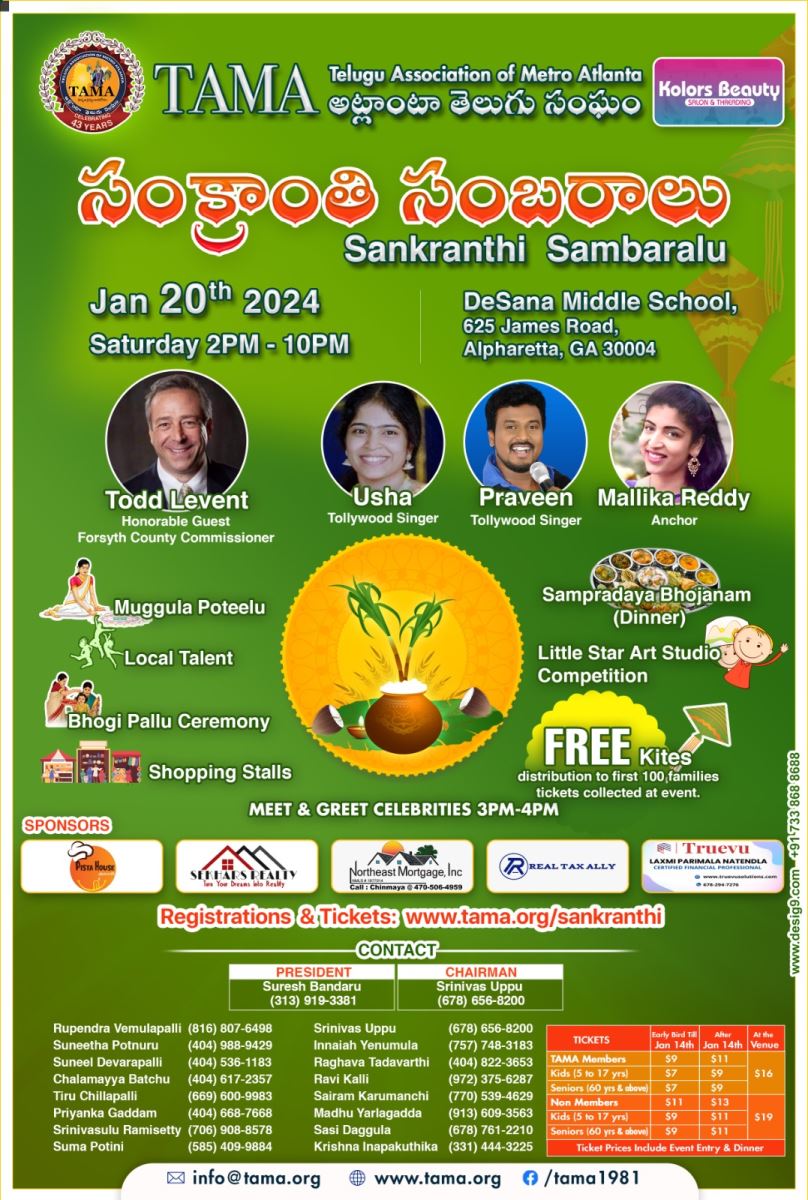





Event Details
About This Event
Sankranti, also known as Makar Sankranti, is a significant Hindu festival that marks the transition of the Sun into the zodiac sign Capricorn (Makara), signaling the end of winter and the arrival of longer days. Celebrated across India in various forms, this festival typically falls on January 14th or 15th and symbolizes new beginnings, harvest, and prosperity.
Significance:
Sankranti marks the Sun's northward journey (Uttarayana) and is considered highly auspicious. It is a time for thanksgiving to nature and a celebration of the harvest, as farmers reap the fruits of their hard work. The festival is also associated with spiritual significance, symbolizing the victory of light over darkness and the importance of charity and community bonding.
Key Traditions and Celebrations:
Puja and Rituals: Devotees take ritualistic baths in holy rivers, perform special prayers to the Sun God (Surya), and offer gratitude for a good harvest. Charity, known as "Daan," is a crucial part of the celebration, with people donating food, clothes, and other essentials to those in need.
Kite Flying: In states like Gujarat and Rajasthan, kite flying is a central activity during Sankranti. Colorful kites fill the sky, symbolizing freedom and joy. Families and friends gather on rooftops to participate in kite-flying competitions, adding to the festive spirit.
Feasts and Sweets: Sankranti is known for its unique sweets made from sesame seeds (til) and jaggery (gur). These ingredients are believed to provide warmth and energy during the winter months. Popular treats like tilgul in Maharashtra, til laddoos in North India, and ellu-bella in Karnataka are shared among friends and family to spread joy and good fortune.
Spiritual Importance:
Sankranti is a time for spiritual reflection, self-purification, and community bonding. It encourages people to embrace new beginnings, leave behind past negativity, and welcome the future with positivity. The festival is also associated with acts of charity, promoting the values of giving and compassion.
Conclusion:
Makar Sankranti is a festival that brings people together, celebrating the rhythms of nature and the rewards of hard work. Through rituals, feasts, and cultural activities, it fosters a sense of unity, gratitude, and hope for the coming year.





 Membership
Membership








 4040 Flowering Peach Rd Waxhaw NC 28173
4040 Flowering Peach Rd Waxhaw NC 28173  +1 (980) 272-1099
+1 (980) 272-1099 globalreddysangam@gmail.com
globalreddysangam@gmail.com